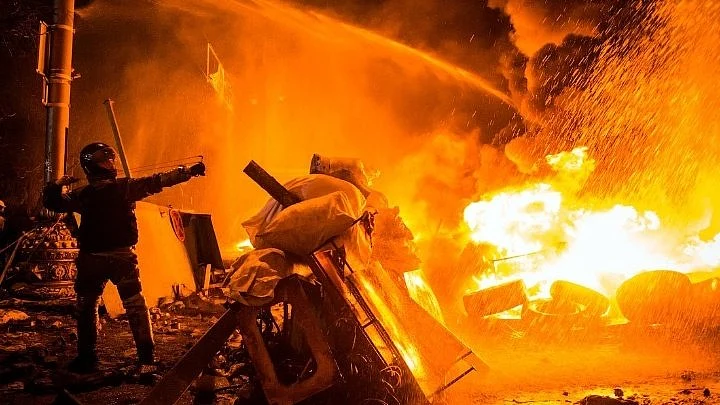And yet, the drums of warfare thrill us…
The finality of someone else’s death hit us hard during two years of the pandemic. But watch how fast, when it comes to war, those people who lost lives and loved ones, will become numbers

The joy of social media is that everyone is an instant expert on everything. Right now, it’s Russia’s invasion of Ukraine. From a couple of Youtube videos, Reddit posts, Whatsapp forwards, and articles from random people with absolutely no domain knowledge, we know exactly what’s going through Vladimir Putin’s mind. The exact details of Joe Biden’s medical condition. What China will gain. The changing world order. The inner workings of Ukraine’s social systems.
What does it matter if just a month ago we barely knew where or what Ukraine was?
Meanwhile, wars are studied closely by the fools who study wars. Those academics who dedicate their lives to warfare and craft and consequences. Historians and archivists who discover new information on old conflicts. Anthropologists and sociologists who study the human condition. Former armed forces personnel who mull, deliberate and ponder on their own experiences and those of others. Military strategists who weigh logistical realities against human cost. What do they know, since they often study the same wars over and over again compared to instant geniuses?
The seminal war of the 20th century still affects us and almost every example or reference used today finds an echo in the Second World War. The war that ended on September 2, 1945 but never really ended. We still don’t know everything about that war. And yet we know everything about the Russian invasion of Ukraine.
And as ever, we find ourselves torn between war and peace. There are those who thrive on the thrill of conflict; who measure success in numbers of weaponry and losses, unmindful that losses include death. “Collateral damage” and “friendly fire” just mean that you’ve killed even more people than you meant to, and people that were on “your side”.
The finality of someone else’s death hit us hard during two years of the pandemic. So many of us suffered personal losses and incalculable damage. But watch how fast, when it comes to war, those people who lost lives and loved ones, will become numbers. Not just statistics – we’re all Covid-19 statistics now – but just stark arithmetic.
This invasion has also seen closely held political positions go a bit topsy-turvy. The Indian right-wing is usually enamoured of the USA and always wanted India to dump the Soviet Union and move West. But now, since Narendra Modi and Donald Trump built up a laddish relationship, the Indian RW doesn’t really like Joe Biden’s USA.
Besides, these Democrats have criticised India’s lack of democracy under Modi. Therefore, the Indian RW which has hated our dependence on the Soviets and also now Russia finds itself one with our leftists, who will always support Russia over the USA. Plus, Modi, with an unerring knack for cosying up to “leaders” with dictatorial characteristics, forged some sort of a relationship with Putin.
Add China into the mix and we find sections of the Right and the Left on one side, and the moderate middles on the other.
To fools like me, the human cost matters more than strategic thrill. My late father had studied the Second World War his whole life. We watched together innumerable documentaries. And in his last days, I read the latest books out to him.
The new research – which upset his compassionate nature – focused heavily on death, on the human cost. From the horror chambers of Nazi concentration camps to the cost of battling the Soviet Union in winter to the bombing of Dresden by the Allies, from Japan’s cruelty across to the Pacific from its treatment of those it captured to the sacrifices of its own youth to honour, the numbers are horrific.
And yet, the drums of warfare thrill us.
Always, over and over again, it is the poets of the First World War, the soldiers who died in the trenches, fighting for what and why they did not know, call to me.
“But death replied: “I choose him.” So he went,
And there was silence in the summer night”
So many of Siegfried Sassoon’s lines resonate:
“For death has made me wise and bitter and strong;
And I am rich in all that I have lost.”
But not as much as those of his colleagues who died in the battlefield. Which takes me back time and again to Wilfred Owen. To his cry to stop selling the “Dulce et decorum est pro patria mori” lie.
To his meeting with an enemy soldier.
To his anthem for doomed youth: “What passing bells for these who die as cattle.”
This is war. More than geopolitics. This is war.
(The author is a senior journalist. Views are personal)
Follow us on: Facebook, Twitter, Google News, Instagram
Join our official telegram channel (@nationalherald) and stay updated with the latest headlines